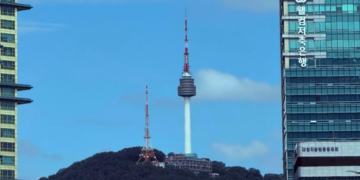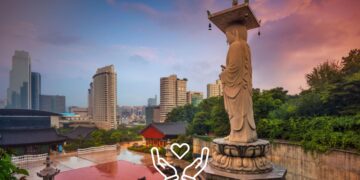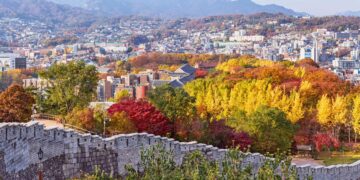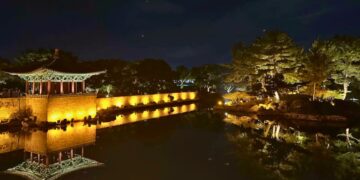There’s something about Jirisan that feels different the moment you arrive. Maybe it’s the way the mist clings to the peaks, maybe it’s the quiet wisdom woven into ancient temples and wild valleys. Or maybe it’s because Jirisan National Park is way beyond just Korea’s first national park; it’s also the most spiritual. If you plan to visit South Korea’s countryside, join our complete guide to South Korea’s most magnificent mountain at the Jirisan National Park, with its various trails, how to get there, and all the things to do beyond.
What Is Jirisan National Park: A Complete Guide
Jirisan National Park (지리산국립공원) is South Korea’s first and largest mainland national park. Established in 1967, it spans over 470 square kilometers across three provinces: South Gyeongsang, North Jeolla, and South Jeolla. At its heart stands Cheonwangbong Peak, the tallest mountain on the Korean mainland at 1,915 meters.
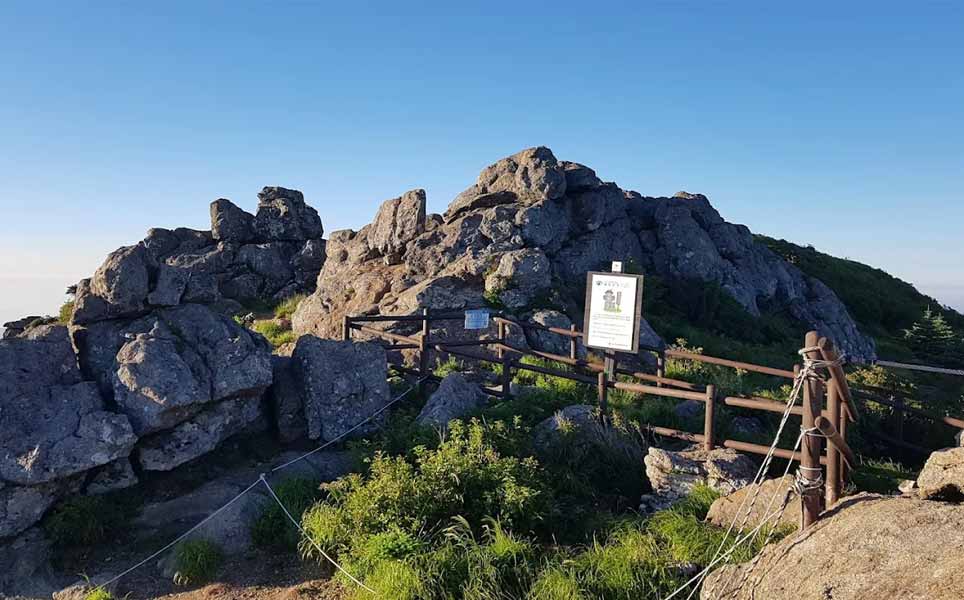
Locals often call Jirisan “the mountain of the wise.” But don’t mistake that for a boring or meditative climb—it’s wild, rugged, full of life, and an unforgettable challenge for those brave enough to explore it.
How Far is Jirisan from Seoul?
Jirisan isn’t a day trip from Seoul, but that’s part of the magic. Depending on where you enter the park (there are multiple gateways like Gurye, Namwon, or Sancheong), you’re looking at 3.5 to 5 hours by bus or car from the capital. You’ll want to plan for at least an overnight stay—or better yet, give it a full weekend.
Here’s how to get to Jirisan National Park from Seoul:
- By Bus: Take an intercity bus from Seoul’s Express Bus Terminal to Gurye or Namwon. From there, local buses or taxis can take you to the park entrances.
- By Train + Bus: Take the KTX to Jeonju or Jinju, then transfer to a regional bus heading toward the park.
- Driving: Use Naver Map or KakaoMap and search “지리산국립공원.” Set your entry point and prepare for scenic rural highways.
Jirisan National Park Trails: What to Expect
Well, we don’t want to sugarcoat anything in this guide, so let’s just be clear: yes, Jirisan is difficult. But it’s also rewarding beyond words.
There are over a dozen peaks above 1,000 meters, and the terrain is rocky, steep, and endlessly breathtaking. But if you think that means you need to be a seasoned mountaineer, don’t worry. Some trails are beginner-friendly, while others will challenge even veteran hikers.
Most Popular Trails in Jirisan National Park
Cheonwangbong Peak Trail (Jungsan-ri Trailhead)
This is the crown jewel, taking you to the highest peak. A 15 km round-trip loop that takes 7–9 hours, depending on your pace. Expect stairs, steep rocks, and jaw-dropping views.
Tip: Start early. Gates close in the afternoon.
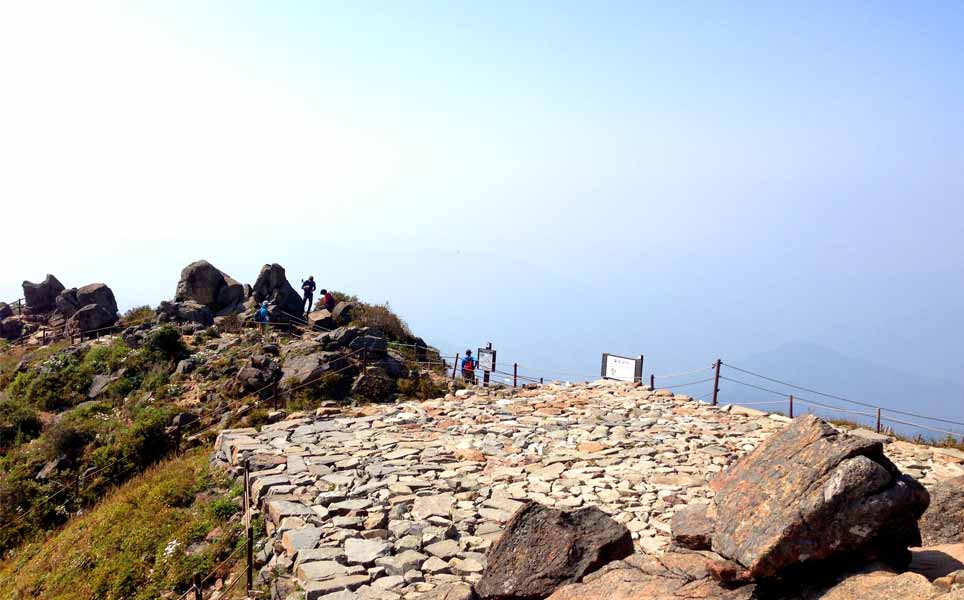
Nogodan Ridge Trail
Ideal for intermediate hikers, this 7.7 km trail rewards you with panoramic views and gentler slopes. Best in spring (for wildflowers) or autumn (for foliage).
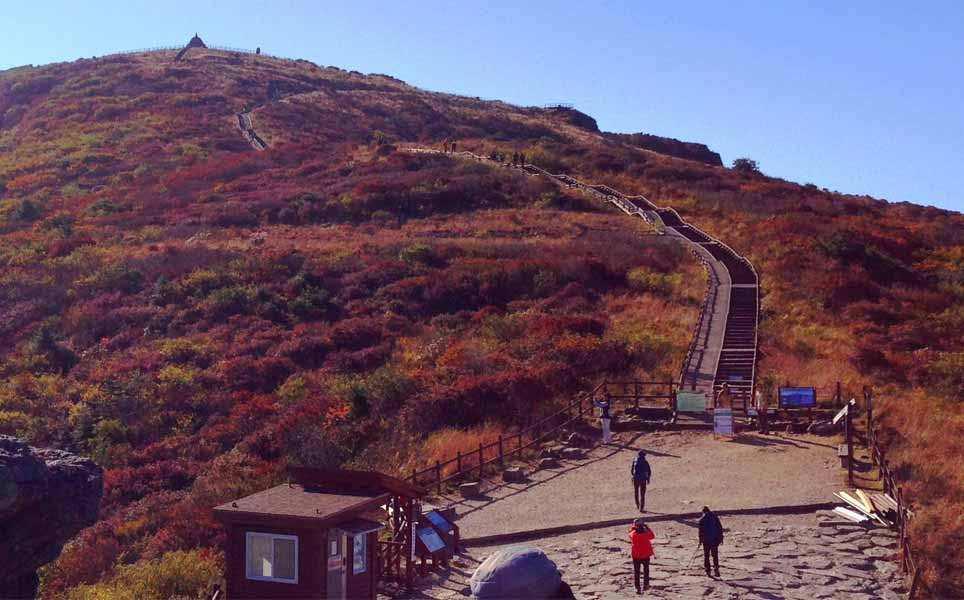
Baemsagol Valley Trail
Less vertical but rich in waterfalls and forested paths. Great for casual hikers who prefer serene walks over elevation.
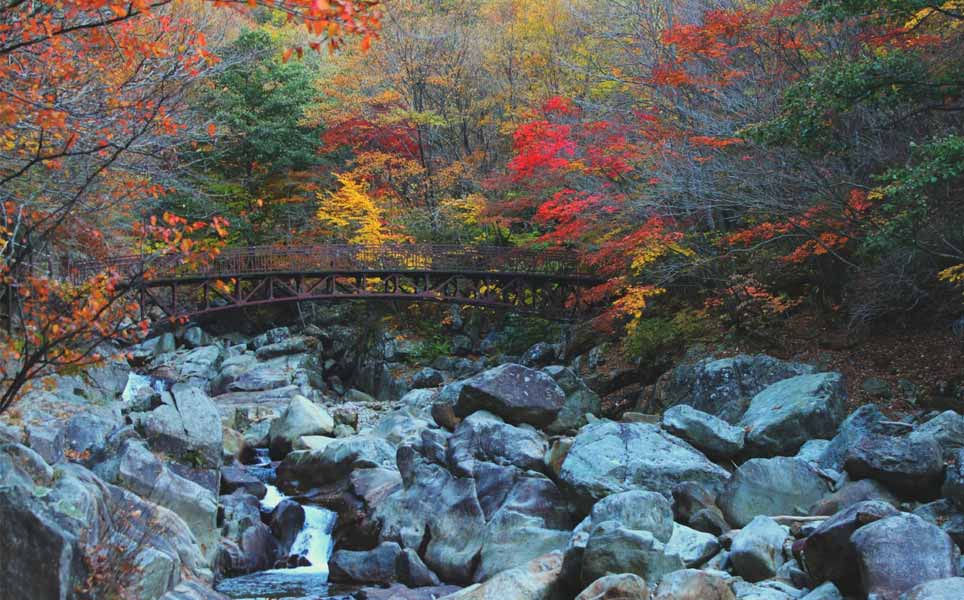
What Animals Are in Jirisan National Park?
Jirisan is home to over 5,000 plant and animal species, many of them endangered or endemic. It’s not just about the views—it’s a living sanctuary.
Wildlife Highlights:
- Asiatic Black Bear (moon bear): Critically endangered and protected. Some areas are conservation zones; you won’t likely encounter them, but knowing they’re here adds a layer of awe.
- Korean goral, roe deer, wildcats, and boars roam freely in the deeper valleys.
- Birdwatchers may spot golden eagles, owls, and colorful pheasants.
So, keep your camera ready, but don’t approach or feed wildlife. This is their home.
Temples, Culture, and Sacred Spaces
Unlike other national parks, Jirisan is deeply spiritual. Seven ancient Buddhist temples are scattered throughout the mountains, many still active with monks and rituals.
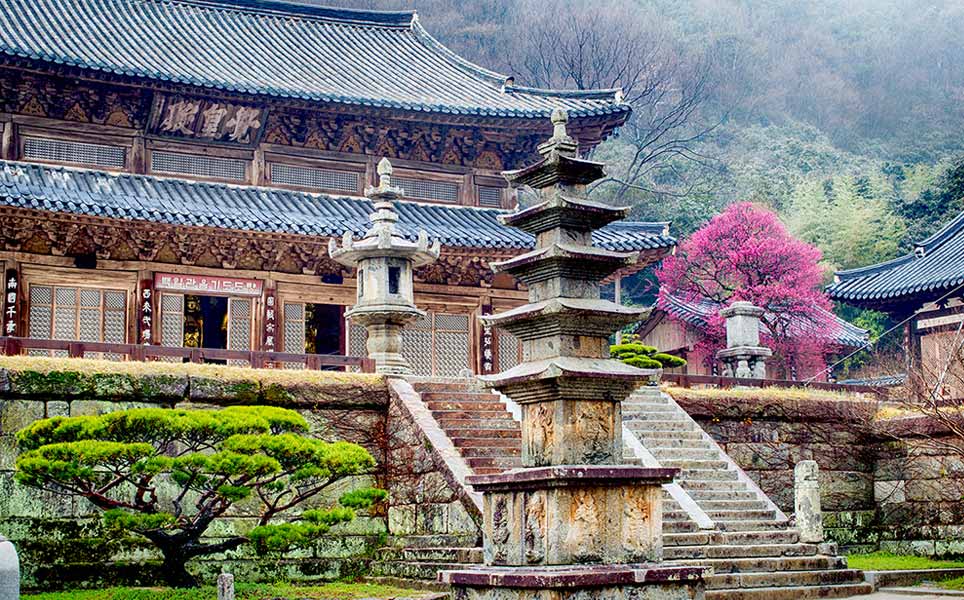
- Hwaeomsa Temple (화엄사): The most famous and historically significant, known for its cherry blossoms and intricate wooden carvings.
- Beopgyesa Temple: Perched at the highest elevation of any Korean temple, it’s a spiritual reward on the Cheonwangbong trail.
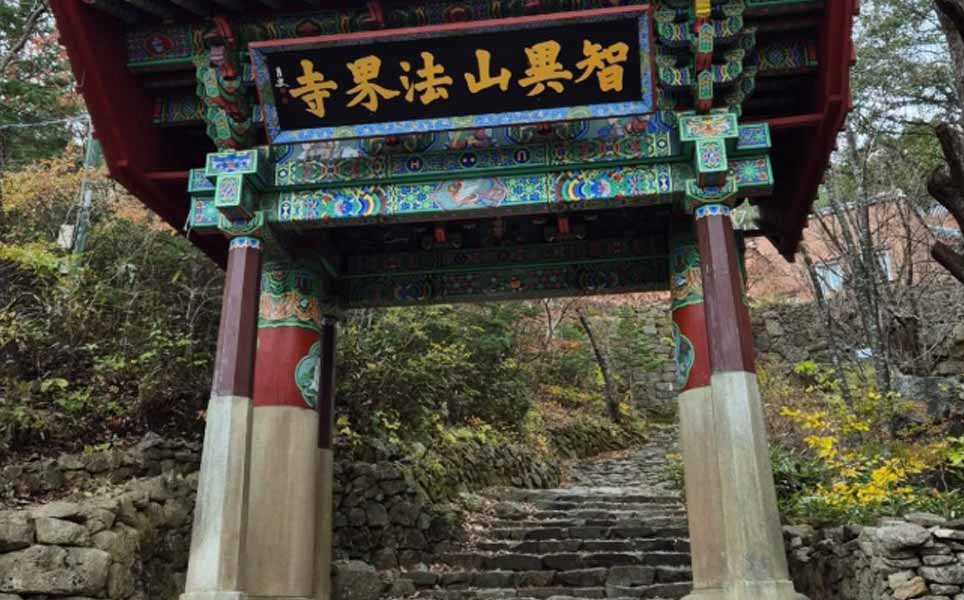
Many of these temples offer templestay programs, where you can sleep overnight, join meditation, and learn about Korean Buddhism firsthand.
Local Culture & What to Eat Near Jirisan National Park
Beyond the trail, Jirisan also offers intimate access to Korean countryside life. Villages like Gurye, Sancheong, and Hadong give you a taste of slow-living culture.
Must-Try Cuisine
- Ssambap: Rice wrapped in wild leaves with house-made side dishes.
- Sanchae-jeongsik: Mountain vegetable set meal—local, earthy, and entirely seasonal.
- Herbal teas and Jirisan ginseng: Popular in local markets and cafés.
Things to Do Near Jirisan National Park
As you visit Jirisan, make sure that you don’t come just for the hike, because this region is brimming with spiritual sites, quiet nature escapes, and local cultural gems that many international travelers overlook.
If you’re venturing to Jirisan National Park, here’s a guide on a few nearby stops and things to do around the park. They will deepen your understanding of Korea’s roots while offering much-needed rest between trail days.
Samseonggung Shrine
Unlike those regular temples, Samseonggung is a sacred space perched deep in the mountains and dedicated to the mythological founding of Korea. Built to honor the Three Heavenly Kings of Korea’s creation lore, the shrine is surrounded by intricate stone towers and panoramic views. If you’ve ever wanted to experience Korea’s folk spirituality away from crowds, this is the place.
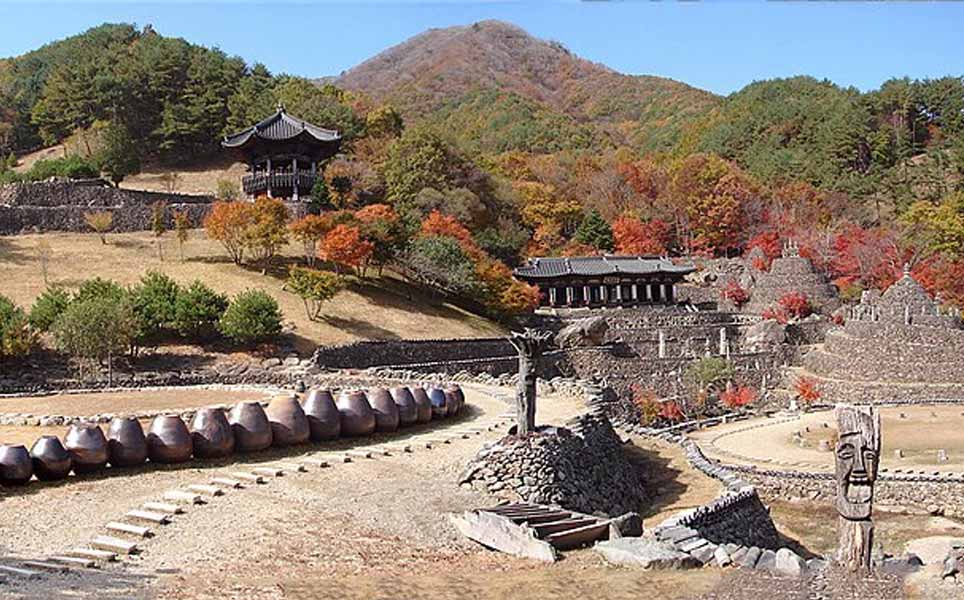
Jirisan History Museum
Located in Sancheong-gun, this small but well-curated museum helps you connect the dots between Jirisan’s rugged landscape and its role in Korea’s history, from ancient kingdoms and resistance movements to its biodiversity and endangered species. Exhibits are bilingual, and it’s a perfect soft-landing activity for rest days between hikes.
Chilseong Valley
Tucked quietly within the park’s folds, this serene valley hides seven cascades that reward those willing to venture just a bit off the main routes. Less crowded than Baemsagol or Piagol, Chilseongyegok feels more intimate and untouched, especially in spring and early summer when the stream swells with snowmelt.
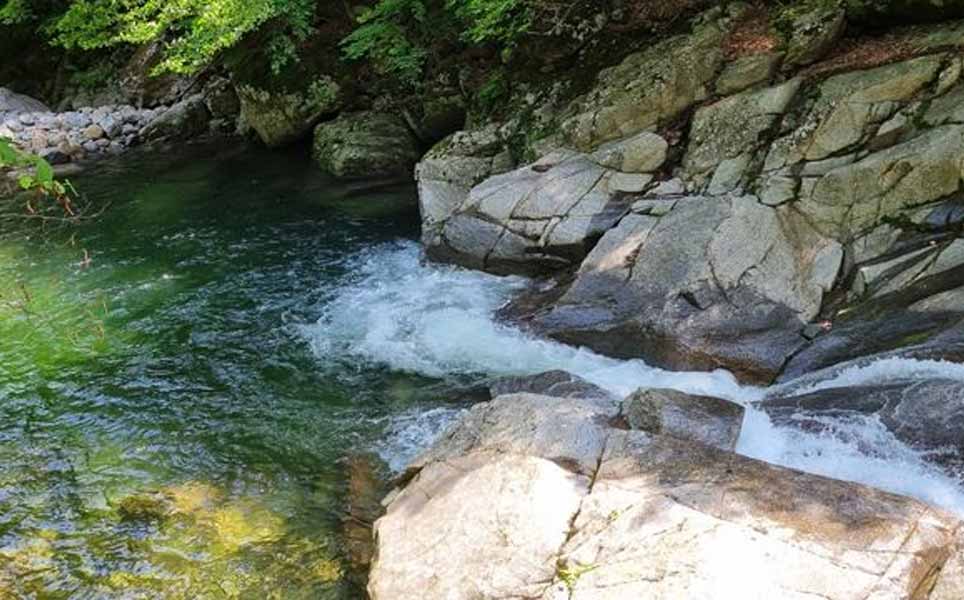
Hiking + Hot Springs
After a long trek, nothing compares to a soak in a traditional Korean jjimjilbang (찜질방). You’ll find several hot spring resorts and bathhouses in nearby towns like Gurye and Sancheong. Some offer outdoor pools with mountain views, herbal baths, or even themed spa experiences. If you’re new to jjimjilbang culture, expect separate men’s and women’s bathing areas, communal relaxation zones, and plenty of steamed egg snacks.
Where to Stay: From Temples to Cabins
- Mountain shelters: Book ahead via the KNPS website. These basic huts fill up fast during peak season.
- Pensions and guesthouses: Found in nearby villages. Cozy and often family-run.
- Temple stays: At places like Hwaeomsa or Beopgyesa for a deeply reflective retreat.
Essential Tips for Visiting Jirisan National Park
Planning to hike Jirisan National Park? Here are some crucial tips that can make or break your trip, especially if you’re visiting South Korea for the first time.
Gate Hours Are Strict—and Seasonal
The park operates on an early bird schedule to ensure hiker safety. From April to October, entry is allowed between 3 AM and 2 PM; during November to March, it shifts slightly to 4 AM to 1 PM. And this is not just a guide to Jirisan National Park because entry after gate hours is strictly prohibited, even if you’re experienced. Therefore, always check the local time and plan accordingly to avoid disappointment at the trailhead.
Bring Korean Cash (KRW)
Many small towns and remote park areas don’t accept international credit cards or digital payments like Apple Pay or Google Wallet. Always carry enough Korean won, especially for transportation, meals near trailheads, and local accommodations. ATMs may be scarce or foreign cards may be rejected, particularly in mountain villages.
Stay Informed on Wildfire Conditions
The spring season brings not just cherry blossoms but also higher wildfire risks. Before your hike, visit the official Korea Forest Fire Information System or the National Disaster and Safety Portal for live alerts and potential trail closures. Some routes may be restricted or rerouted during high-risk periods.
Download Offline Maps
Mobile signal can be patchy in the deeper mountain trails. Download Naver or Kakao Maps in advance and save the park area offline.
Bonus: Naver often includes trail elevation data and temple waypoints in English.
Layer Up and Pack Light
Weather on the mountain can change fast—sunny at the base, misty and chilly at the summit. Therefore, lightweight layers and waterproof outerwear are a must. And don’t forget trail snacks: mountain-side vendors may be few and far between.
Jirisan National Park: More Than a Hike, a Memory That Lingers
Now that you’ve reached the end of our guide to Jirisan National Park, remember this: everything you do here—every trail you hike, every breath of misty morning air at an ancient temple—will stay with you. Jirisan isn’t one of those places you visit and forget. Once you’ve walked its trails, no matter where life takes you, a part of you will always look back to these moments where Jirisan National Park embraces you with its majestic scenes.
So don’t wait. Pack your bags. The mountain is ready when you are.
Related Posts
5,288 total views, 7 views today



